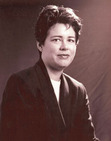What Is There to Say?
What kind of dialogue are you assigning to your characters?
The snappy kind that zings back and forth?
The erudite, intellectual kind that calls forth rolling periods of rhetoric?
The mundane chat of reality?
Maybe you’re using a combination of the three, depending on the design of your characters.
Or possibly you aren’t sure what to do with dialogue–let alone how to punctuate it–so you’re relying instead on narrative and description to carry your tale forward.
Commercial fiction–the kind that I write–relies heavily on dialogue between characters. I was trained to set up fiction scenes to be a combination of dramatic action and dialogue. Doing so allows the story to advance and keeps the pacing quick.
An important thing to remember about dialogue is that it’s in the story to either display character personality, share reaction from a non-viewpoint character, or heighten the conflict. Any of those three purposes results in story advancement.
The worst kind of dialogue is aimless chatter between two characters in agreement, where they say nothing but social amenities. I can get that drivel at any time in real life. I want my fiction to be heading somewhere to deal with something that matters!
It helps if you have what is known as an “ear” for dialogue. Are you born with that talent? Maybe. Can you develop that skill? Sure you can.
How?
Listen to the best dialogue in the best films. Shut your eyes in front of your television and just listen. Don’t watch. (Ideally you should view the movie in its entirety first before you try this exercise.) What makes sense? What doesn’t? Start the track over and listen again.
This kind of listening exercise is hindered a bit by actor voice inflection and the soundtrack, but you can overcome such distractions.
It’s helpful if you can read the script as you listen.
Pick the films carefully. I recommend the classic movies–the old b/w ones–because many of them featured such strong writing. Screwball comedies such as Bringing Up Baby or His Girl Friday were pioneers of certain types of dialogue. I believe His Girl Friday is the first film to allow characters to talk over each other. Bringing Up Baby pushed the speed of delivery.
Another, possibly less famous, film is Billy Wilder’s One, Two, Three. It was the movie that drove James Cagney into retirement. One of the scenes requires Cagney’s character to speak extremely rapidly as he issues orders to solve the mess he’s in. Take after take forced Cagney to talk faster and faster, until he was exhausted. The effect onscreen is hilarious.
Any Billy Wilder film is going to feature superb dialogue. Another master is Preston Sturges. I’m sure you can think of an entire string of favorite movies that you admire.
Beyond listening, you should also develop your “ear” by reading good dialogue in novels. If you’re going to write prose, you have to focus on that medium and observe how writers get inflections and tone of voice across with words alone.
A great deal of it has to do with the character’s vocabulary. Other factors include the rhythm of the sentences, their cadence. Are they clipped and staccato? Are they drawling, slow, and loquacious?
Compare the varying speech patterns among the cast of Key Largo. Again, part of this has to do with the actors, but you can adapt those rhythms to your own passages.
Look at the stripped dialogue of a writer like James Cain. It’s as naked as a bare wire suspending a light bulb from the ceiling. It gets the story across in a raw, almost brutal kind of way.
Maybe you’re writing a romantic story instead. How tenderly, then, can your characters converse with each other?
Or, if you’re into urban fantasy, can your characters achieve the snarky sarcasm of a Jim Butcher protagonist?
Enjoy mysteries? Agatha Christie’s stories are almost entirely dialogue.
To quote one of the best movie lines ever (in Singing in the Rain when Lena Lamont proclaims in her varnish-stripping voice): “Well, of course we talk! Don’t everybody?”

C. Aubrey Hall's Blog
- C. Aubrey Hall's profile
- 7 followers



